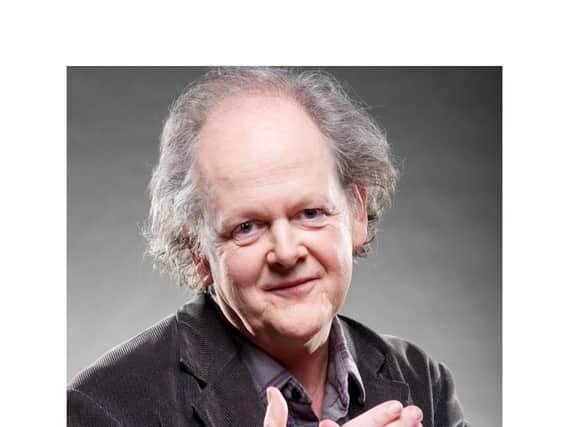Brighton Festival 2021 - 1 2 3 4 The Beatles In Time by Craig Brown


Brighton Festival 2021 literary – Book and Author: “1 2 3 4 The Beatles In Time” by Craig Brown interviewed by Dymphna Flynn in the Main Hall at Brighton Girls School, Montpelier Road, Brighton, Thursday 20 May 7.30pm (65mins, no interval).
First live event featuring this book, published 18 months ago, already in paperback. All 80 tickets sold (normal capacity 320). No sales or signing, owing to Covid restrictions.
Advertisement
Hide AdAdvertisement
Hide AdThe Beatles sell out another event without even being there! And well might they have sold out a non-Covid restricted full house. It wasn’t an all-silverhead audience, of course, because their appeal is ageless. But take away the music, and what that’s written about them is truth or myth? We tend to put aside that doubt as we gobble up each word.
Around 1,000 published books re-tell The Beatles’ story. That mass media recording and re-writing of their history, sometimes probably even guessing it, immediately became its own industry, sometimes chancing its arm in authenticity. Researching what’s dubious or outrageous, are you probing hearsay or folklore? What is which? It’s a minefield of traps.
Those 1963-1970 adolescents and 20s watching that birth of a still unremitting world phenomenon were the only genuine witnesses. Certain formative-years memories don’t much fade, even less alter. But writers, academics and documenters unborn then are unavoidably on the borrow.
Author Craig Brown was there. His septuagenarian generation’s opinions and contemporaneous reactions and feelings are liable to be those most trustworthy – solidified and reinforced, amid subsequent story-spinning, with received misinterpretation or misinformation, and lazy research.
Advertisement
Hide AdAdvertisement
Hide Ad“1 2 3 4 The Beatles In Time” (the definite article must always have a capital letter in front of The Beatles) is ducking brickbats, maybe from rivals with vested interests in their own publications, bearing conflicting accounts, maybe some whose affectionate, perhaps inaccurate conceptions are offended. Did none of Brown’s information stem from people with tinted spectacles or mind-altered memories?
Storytellers from the parallel advent of western drug culture may always have carried hazed-up memoirs. And The Beatles themselves became deeply and very publicly the guinea pigs in that template-moulding onset of rich, successful pop stars’ purchasing power rendering them vulnerable, malleable, naive, impressionable, unwitting or in plenty of cases adventurous targets of dealers.
What interested the BBC’s makers of their Radio 4’s Book of the Week five-edition series this Spring was that the Etonian Brown’s approach wheedled out coincidental destiny-determining circumstances his published forebears thought too tangential. Things quirky, off-beat, yet sobering or comical. Brown’s angle was seen as finding a new definition of the biographical documentary.
Brown told his Brighton Festival audience: “Their story was not self-propelling. But things happened all so quickly. George Harrison was only 17 in Hamburg, then there were only four years between I Want To Hold Your Hand and Why Don’t We Do It In The Road.”
Advertisement
Hide Ad